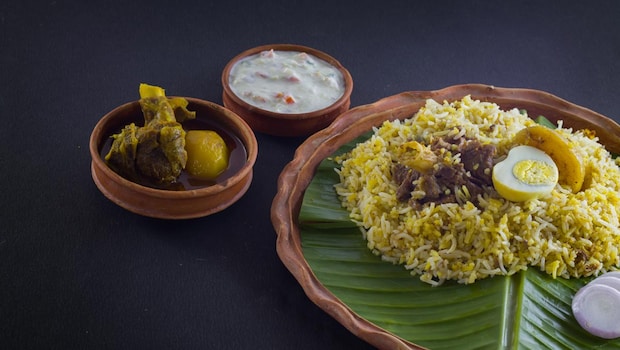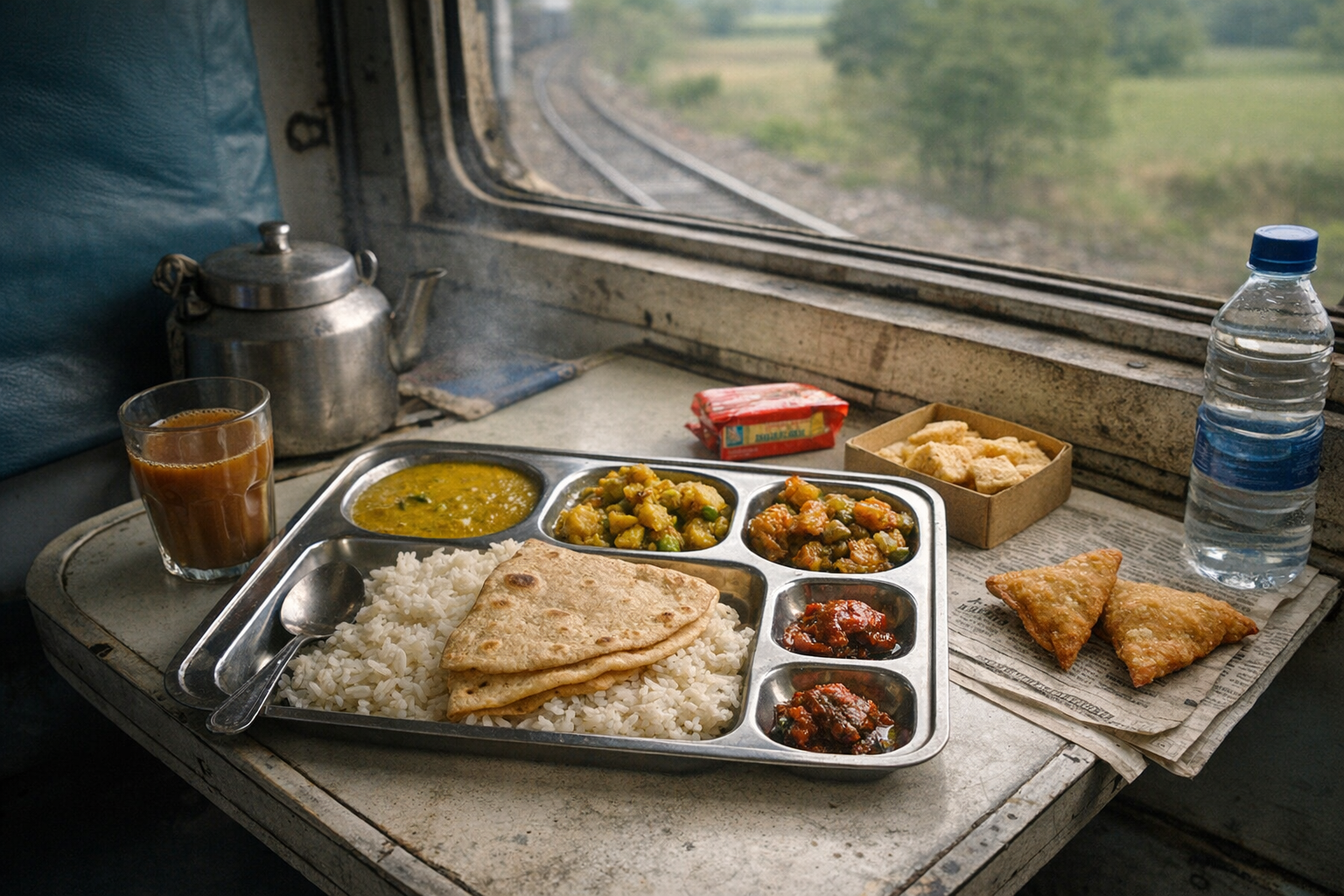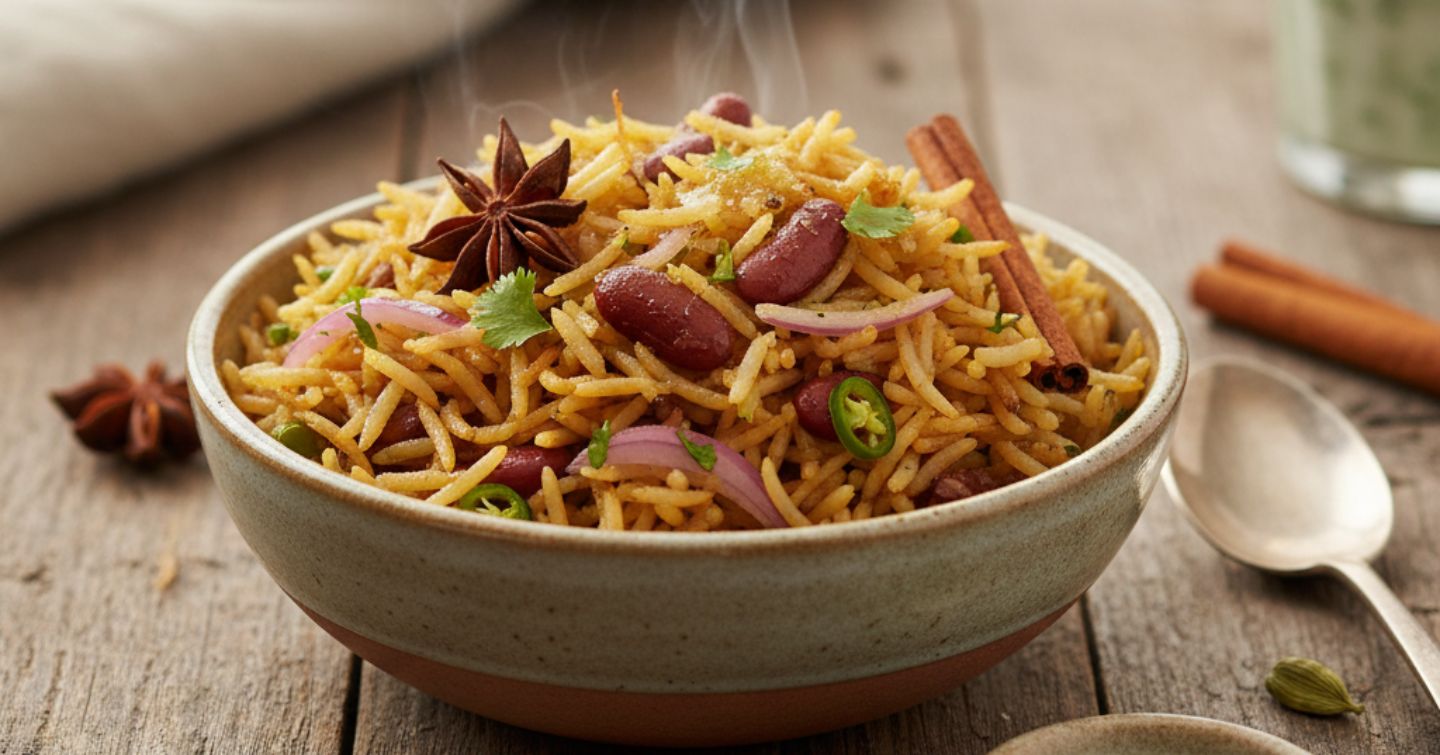Often hailed as the undisputed superstar of the Indian subcontinent, biryani, a culinary masterpiece transcends borders and cultures. Sparking passionate debates over regional superiority, this iconic dish is a perfect amalgamation of long-grain rice, meat, and a blend of spices, meticulously layered and slow-cooked to perfection. From the widely celebrated North Indian biryanis to the lesser-known yet equally delicious South Indian interpretations, which often bear the influence of Arab-inspired flavours, each rendition is a unique chapter in the biryani saga. While some are laden with aromatic gravies and slow-cooked perfection, others are celebrated for their simplicity.
What remains consistent across all these variants is the meticulous and intricate process of layering. Without delay, let's explore the various types within the biryani landscape that seamlessly bring together a diverse group of food aficionados.
Lucknowi or Awadhi Biryani
Lucknowi or Awadhi Biryani is different from its South Indian variant in terms of taste and flavours. With its regal origins dating back to the opulent courts of Awadh, Lucknowi or Awadhi biryani seamlessly marries Persian and Indian culinary influencers. This illustrious dish gained popularity in the 18th century, largely credited to Nawab Asaf-ud-Daula. Renowned for its tender meat, aromatic spices, and the use of long-grained rice, Awadhi biryani is often cooked to perfection through the 'Dum Pukht' technique, where flavours intermingle to create a harmonious balance.
The process begins with marinating succulent pieces of chicken in a blend of yogurt, aromatic spices, and saffron-infused milk, infusing them with a rich and complex profile. As the biryani takes shape, fragrant long-grain Basmati rice is parboiled and then layered with marinated chicken, caramelised onions, and fresh mint leaves. This exquisite composition is repeated, building upon the layers, each one imparting its unique essence. A final touch of saffron-infused milk and a generous drizzle of ghee crown this masterpiece. The biryani is then sealed with a tight-fitting lid and slow-cooked on a low flame, allowing the flavours to meld, creating a perfect balance of taste that is the hallmark of Awadhi cuisine.
Also Read: Is Veg Biryani Even A Biryani? Here's All You Need To Know

Photo Credit: iStock
Kolkata Biryani
Kolkata Biryani, with its roots firmly anchored in the pages of history, came into being during the time when Nawab Wajid Ali Shah found refuge in the vibrant city of Calcutta. This culinary gem, influenced by the rich traditions of Lucknowi or Awadhi biryani, carries with it a legacy of innovation and flavour. It was during Wajid Ali Shah's exile that the city of Calcutta became a melting pot of cultures, and the culinary expertise of his bawarchis, driven by a desire to recreate the flavours of home, birthed what we now know today as the Kolkata Biryani. This biryani continues to enchant palates with its aromatic rice, succulent meat, and the surprising inclusion of the humble 'aloo' (potato).
The science of layering is like crafting a magical flavour journey, building a delicious, edible story where each layer adds depth and richness to the tale. The technique involves meticulously alternating layers of partially cooked rice and marinated meat creating a delightful blend of flavours. This intricate process begins with fresh ingredients, where the rich rogan, painstakingly extracted through 5-6 hours of patient meat frying, infuses every morsel with flavour. The rice, slow-cooked to maintain its integrity, sets the stage. Add the precious potatoes - an integral part of Kolkata biryani, especially for Bengalis who can't imagine it without 'aloo.' The saffron-infused milk adds a heavenly touch of colour and flavour alongside khoya. Once again, rice takes its place, and the entire masterpiece is carefully sealed within the Handi and slow-cooked for an hour over a coal furnace until it reaches a pinnacle of perfection.
Hyderabadi Biryani
The art of layering in Hyderabadi Biryani is yet another culinary journey that captivates the senses. Unlike its northern counterpart - the Awadhi biryani, the Hyderabadi version takes a distinctive approach. In the Hyderabadi tradition, influenced by the vibrant Andhra region, the biryani starts with a base layer of partially cooked fragrant Basmati rice, followed by marinated meat and saffron-infused milk.
What sets it apart from its northern counterpart is not just its bold and spicy character but also its unique layering technique. Hyderabadi Biryani comes in two main varieties: Kacchi and Pakki. Kacchi Biryani features marinated raw meat layered amidst uncooked rice, sealed with dough, and slow-cooked on hot coals, allowing the steam to work its magic in tenderising the ingredients. In contrast, Pakki Biryani involves the pre-cooking or frying of the meat before layering it with rice. Both variations share the essence of intense flavours, with saffron-infused rice intermingling with a medley of hot and pungent spices, creating a distinctive taste profile that's distinctly Hyderabadi.
The Bottom Line
The diverse culinary landscape of India boasts an astounding array of biryani variations beyond the aforementioned. From the intricate Mughlai Biryani in Delhi, featuring Achari Biryani and Nizami delights near the dargahs, to the tangy Chettinad Biryani of Tamil Nadu, each variant tells a unique story of flavours. Bohra Muslim Biryani, adorned with dried apricots and plums to balance its fiery and zesty notes, adds yet another enchanting chapter to this saga. No matter the regional twist, the true essence of biryani lies in the intricate science of layering, serving as the unshakable foundation of this beloved culinary art across India.
Author Bio: Azra Asher Ather is the Director of Sales at Aminia.
Disclaimer: The opinions expressed within this article are the personal opinions of the author. NDTV is not responsible for the accuracy, completeness, suitability, or validity of any information on this article. All information is provided on an as-is basis. The information, facts or opinions appearing in the article do not reflect the views of NDTV and NDTV does not assume any responsibility or liability for the same.









